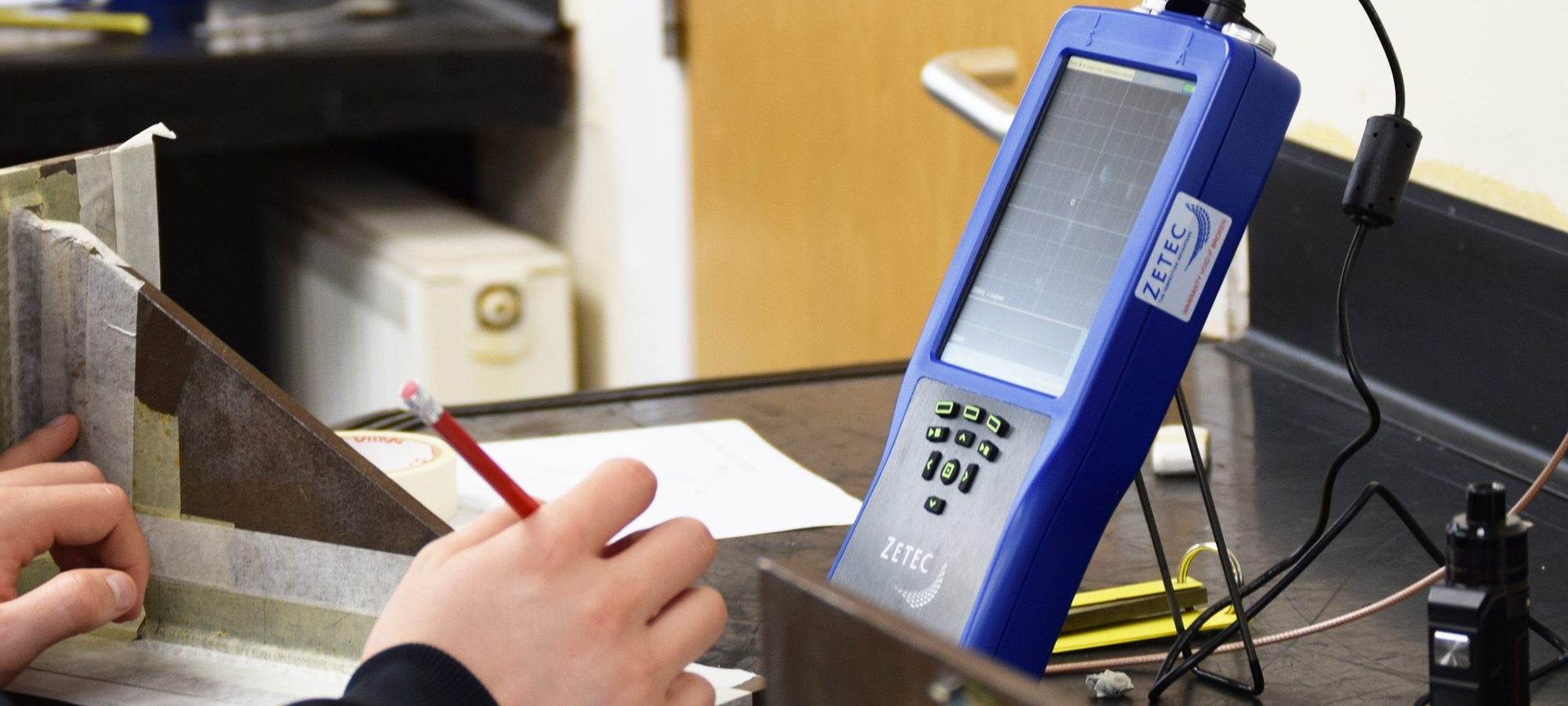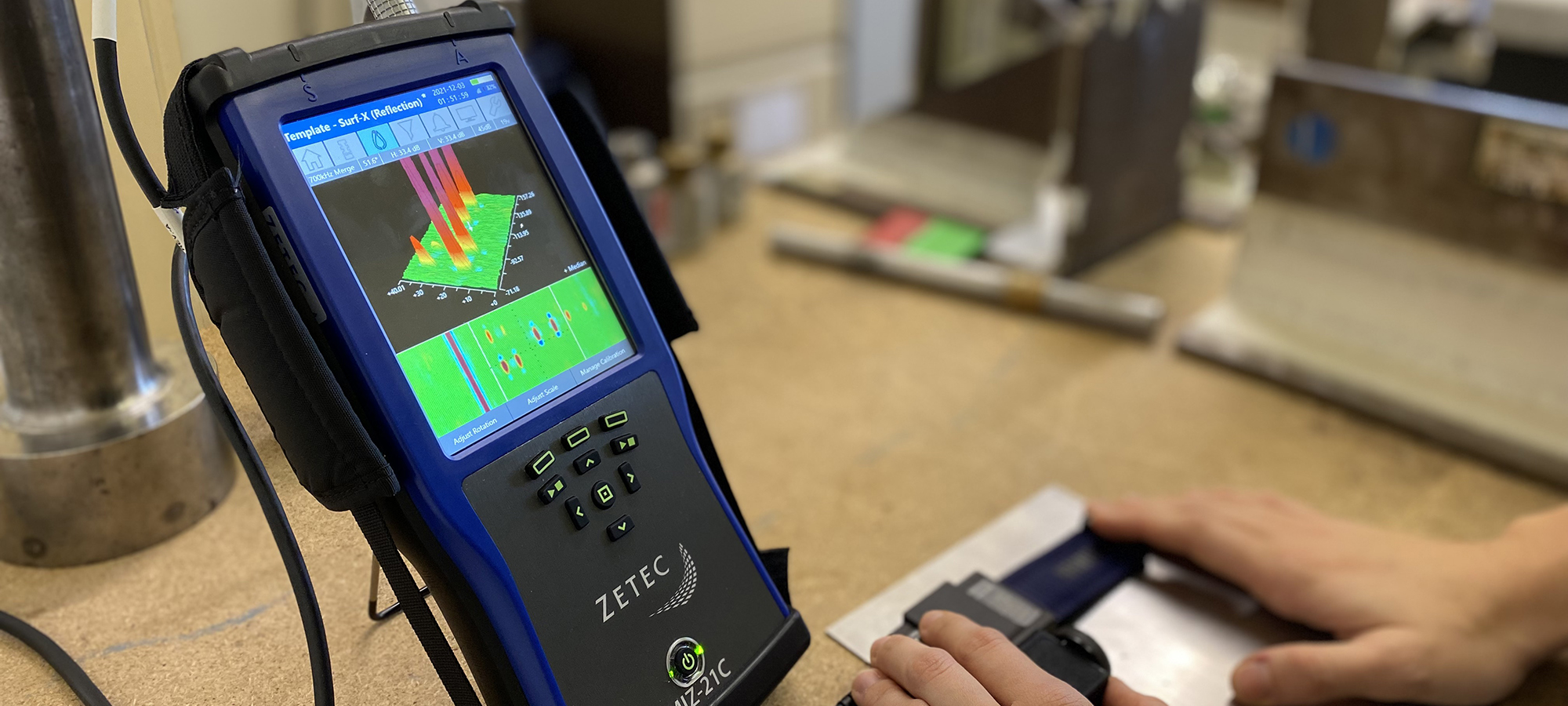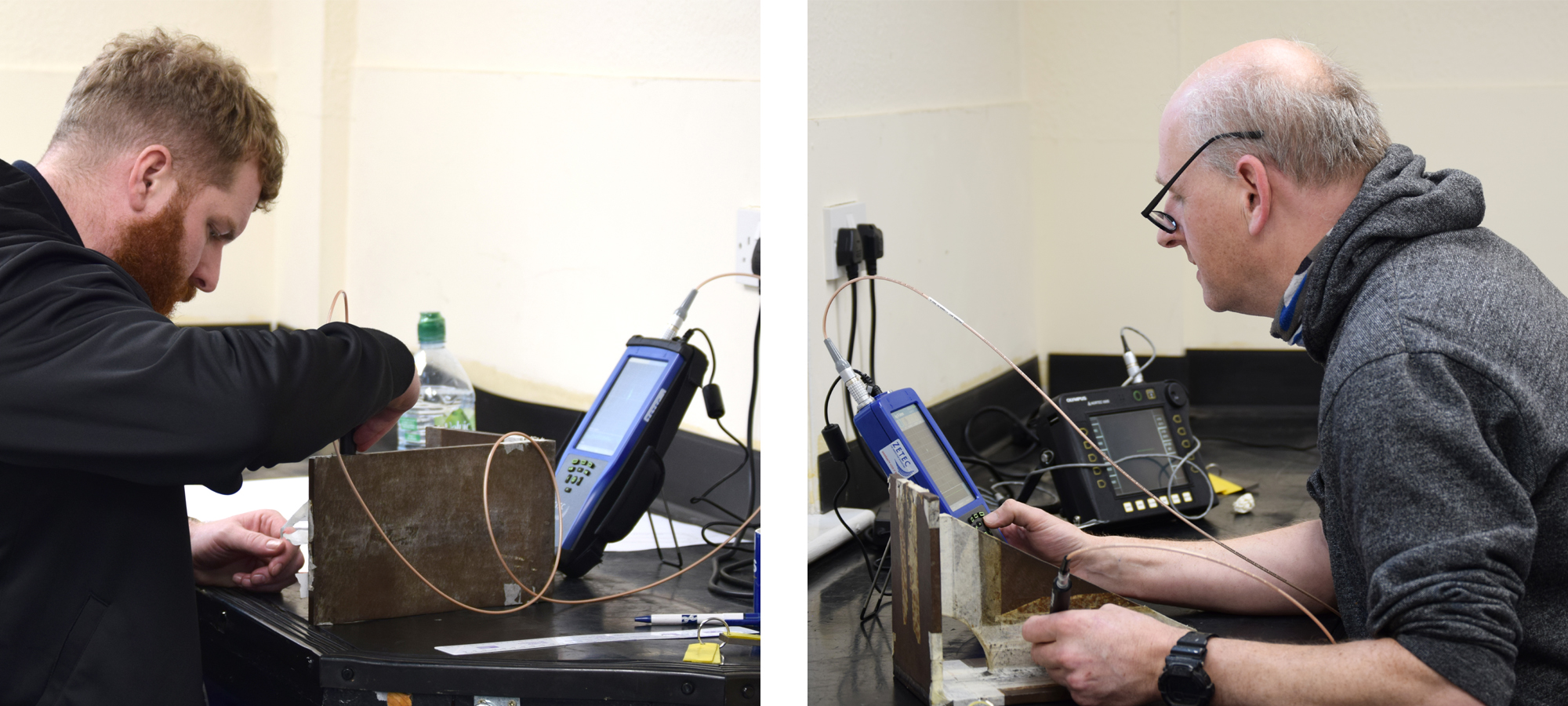
What is Eddy Current Testing?
Eddy current testing is a non-contact electromagnetic testing technique used for the inspection of conductive materials without the need to remove non-conductive coatings. An alternating current is passed through a coil in order to create an alternating magnetic field which is used to induce a localised current (eddy current) into the material under test. Discontinuities such as fatigue cracks will interrupt the flow of eddy currents and alter the terminal impedance of the test coil. The amplitude and phase of the received signal can be interpreted to ascertain the severity and exact location of any discontinuities found. Eddy current is routinely used to inspect a wide range of different materials and components across several fields of engineering including oil and gas, nuclear, power generation and aerospace.
What are the responsibilities of a individual who is certified to Eddy Current Level 3?
An individual certified to Level 3 has demonstrated:
- The competence to evaluate and interpret results in terms of existing standards, codes, and specifications;
- Sufficient practical knowledge of applicable materials, fabrication, process, and product technology to select NDT methods, establish NDT techniques, and assist in establishing acceptance criteria where none are otherwise available;
- A general familiarity with other NDT methods
Within the scope of the competence defined on the certificate, Level 3 personnel may be authorised to:
- Assume full responsibility for a test facility or examination centre and staff;
- Establish, review for editorial and technical correctness and validate NDT instructions and procedures;
- Interpret codes, standards, specifications and procedures;
- Designate the particular test methods, techniques and procedures to be used;
- Within the scope and limitations of any certification held, carry out all tasks at all levels;
- Provide guidance for NDT personnel at all Levels.
Level 3 certificated personnel may be authorised to carry out, manage and supervise PCN qualification examinations on behalf of the British Institute of NDT.
Where Level 3 duties require the individual to apply routine NDT by a method or methods within a particular product or industry sector, the British Institute of NDT strongly recommends that industry demand that this person should hold and maintain Level 2 certification in the applicable method(s) and sector(s).
The range and scope of PCN certification available at each level is defined in the relevant appendix to these general requirements.

We’ve invested in new equipment for our Eddy Current courses. Read about it here.

